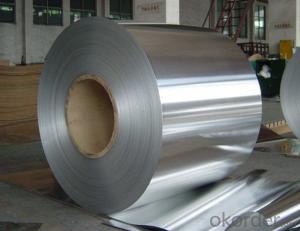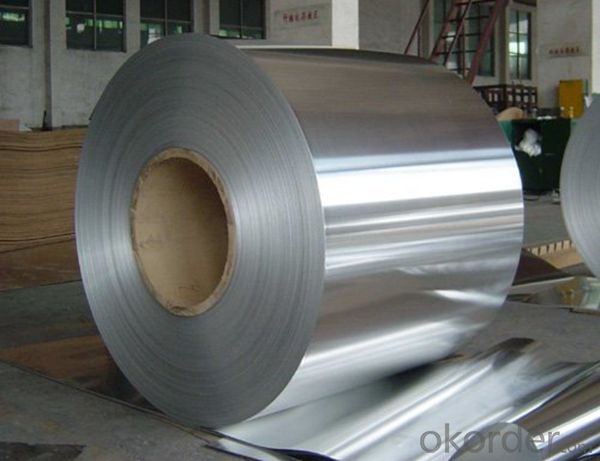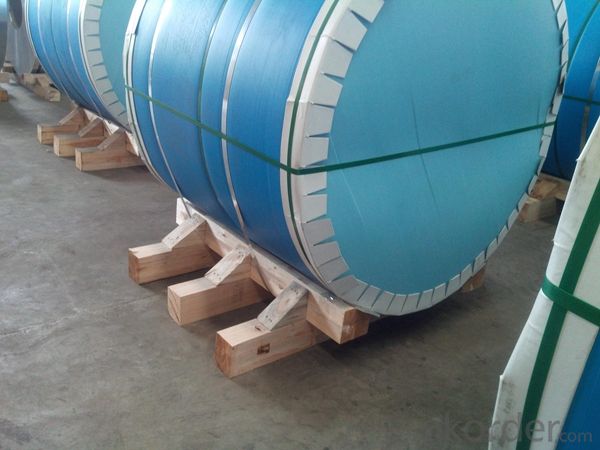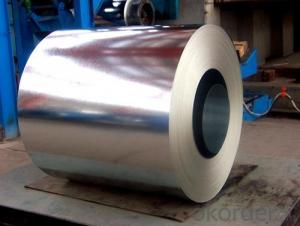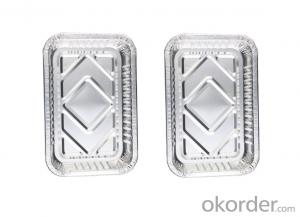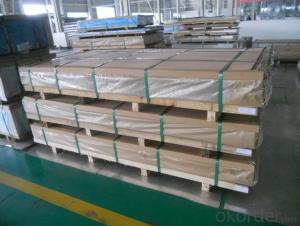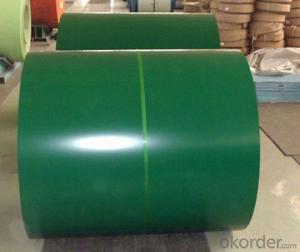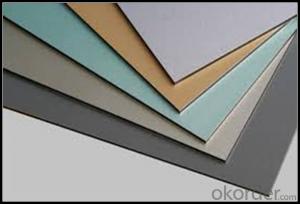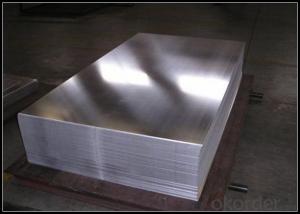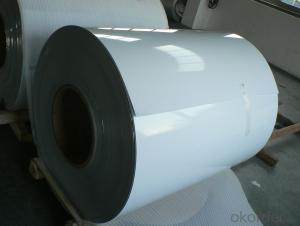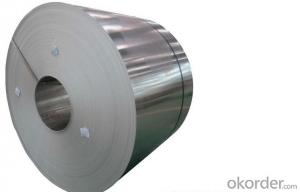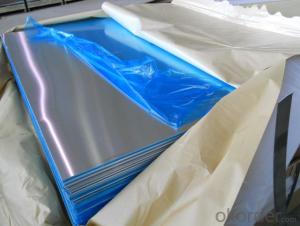Anodized Aluminum Sheets for Aircraft and Curtain Wall System
- Loading Port:
- Shanghai
- Payment Terms:
- TT OR LC
- Min Order Qty:
- 5 m.t.
- Supply Capability:
- 100000 m.t./month
OKorder Service Pledge
OKorder Financial Service
You Might Also Like
Specification
1.Structure of Anodised Aluminum Rolls for Curtain Wall System
Aluminum Sheets are strengthened and cut from raw materials with different alloys, such as AA5005, AA5052, etc. They are easy for processing in different shapes, good in intensity and can be quickly installed. Aluminium Sheets for Energy Saving Curtain Walls are good in energy saving, weather resistance, fire resistance, easy for maintenance and with many colors.
Aluminium Sheets for Energy Saving Curtain Walls are widely used in construction of metal walls, metal ceilings, car decoration, advertizing panels, etc.
2.Main Features of Anodised Aluminum Rolls for Curtain Wall System
•High intensity
•Easy to be processed and shaped
•Weather resistance
•Anti-pollution & environment protection
3. Anodised Aluminum Rolls for Curtain Wall System Images
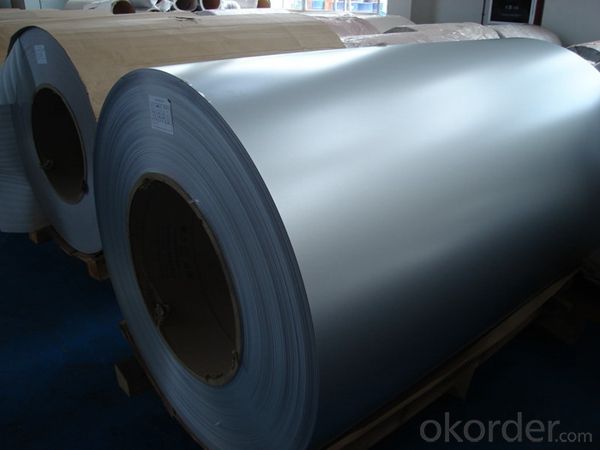
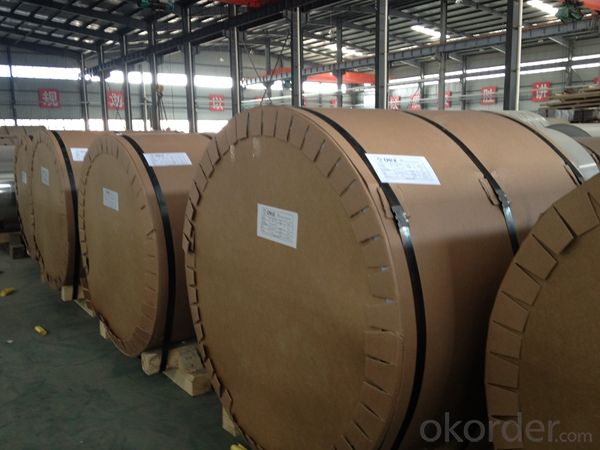
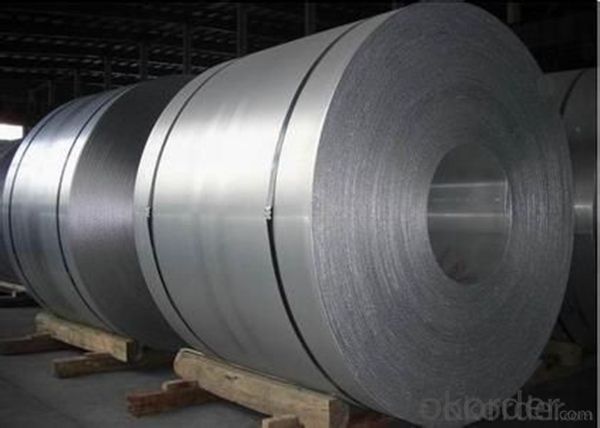
4.Specification of Anodised Aluminum Rolls for Curtain Wall System
Alloy Number | AA5XXX |
Temper | H12, H14, H16, H18, H22, H24, H26, H32, HO, F |
Thickness | 0.1mm – 500mm |
Width | 10mm- 2200mm |
Standard | GB/T3880-2006, ASTM, ISO, EU standard |
5.FAQ
A.What about inspections to guarantee quality?
For each order for Aluminum Sheets with Mill Finished Surface AA5XXX, we will arrange strict inspection for raw materials, inspection during production and inspection for finished goods.
With requirement of customers, we also can arrange the third party inspection.
B.What about delivery?
We will put order for Aluminum Sheets with Mill Finished Surface AA5XXX in production schedule after order gets confirmed against copy of TT or L/C. Normally it takes about one month for production. Exact shipment schedule is different based on different sizes and quantity.
C.What is the MOQ?
5 tons for each size.
D. Where have you exported aluminium sheets?
We have exported aluminum sheets to many countries. Main markets include South East Asia, Middle East, North America, South America, etc.
- Q: What is the lifespan of aluminum sheets?
- The lifespan of aluminum sheets can vary depending on various factors such as their usage, environment, and maintenance. However, when properly cared for, aluminum sheets can last for decades or even a lifetime due to their inherent resistance to corrosion and durability.
- Q: Are aluminum sheets easy to clean?
- It is generally a simple task to clean aluminum sheets. Aluminum, being a non-porous material, has the advantage of not readily absorbing liquids or stains. Consequently, it is fairly easy to remove dirt, dust, or spills from the surface of aluminum sheets with the use of a moist cloth or sponge. Furthermore, aluminum's resistance to rust and corrosion means that no special cleaning agents or treatments are necessary. However, it is worth noting that abrasive cleaners or scrubbing pads should be avoided as they have the potential to scratch the aluminum surface. In summary, by regularly maintaining and employing proper cleaning techniques, aluminum sheets can be kept clean and in excellent condition for an extended period of time.
- Q: Can 101 aluminum sheets be used for roofing or siding?
- Yes, 101 aluminum sheets can be used for roofing or siding. Aluminum is a popular material for both roofing and siding due to its durability, lightweight nature, and resistance to corrosion. The use of aluminum sheets for roofing or siding provides a long-lasting solution that can withstand harsh weather conditions and requires minimal maintenance. Additionally, aluminum sheets are available in various thicknesses, including 101, allowing for flexibility in design and structural needs.
- Q: The radius of an atom of aluminum is 143pm and there are 10^12 in a meter. The aluminum is a 3x3cm square. The density is 2.70 g/cm^3. I found the mass to be 0.03g. I found the volume to be 0.09cm^3
- Good quality standard aluminum foil such as Reynolds brand is 0.007 inches thick. If aluminum atoms are indeed 143 picometers in radius then the foil would be 2,486,713 atoms thick. Of course, the thickness is not controlled to a tolerance of one atom. (Cheaper brands are about 0.0060 to 0.0065 inches thick.) The ionic radius of aluminum is commonly accepted to be 72 pm, and as of 2008 a covalent radius of 121 pm. . .
- Q: Are aluminum sheets resistant to UV radiation?
- Yes, aluminum sheets are generally resistant to UV radiation. Aluminum is known for its excellent corrosion resistance, and this extends to its resistance to UV radiation as well. The oxide layer that naturally forms on the surface of aluminum provides a protective barrier against the harmful effects of UV rays. This oxide layer acts as a shield, preventing the aluminum from deteriorating or fading when exposed to sunlight or other sources of UV radiation. However, it is important to note that prolonged exposure to intense UV radiation may eventually cause some degradation or discoloration of the aluminum surface. Therefore, while aluminum sheets are highly resistant to UV radiation, it is still advisable to provide additional protection, such as coatings or paint, for applications that require extended exposure to harsh UV environments.
- Q: Are 101 aluminum sheets easy to work with in terms of cutting, drilling, and shaping?
- Cutting, drilling, and shaping aluminum sheets is generally quite easy, especially when working with 101 aluminum. This alloy is known for its malleability and lightweight nature, making it more manageable compared to other metals. It offers good formability and weldability, making it suitable for various fabrication processes. To cut aluminum sheets, common tools such as saws, shears, or even a simple utility knife can be used. Similarly, drilling holes in aluminum sheets is relatively effortless and can be done using standard drill bits. Shaping aluminum sheets can be accomplished through bending, folding, or by utilizing specialized tools like a brake press. However, it is crucial to always prioritize safety and use appropriate measures and equipment when working with any metal, including aluminum.
- Q: How do aluminum sheets perform in terms of electrical conductivity?
- Known for their excellent electrical conductivity, aluminum sheets are highly conductive and rank second only to copper among common metals. This exceptional conductivity makes aluminum sheets ideal for a range of electrical applications, including wiring, power transmission, and electrical components. The low resistivity of aluminum enables efficient electricity transfer, leading to minimal energy loss during transmission. Furthermore, the lightweight nature of aluminum sheets makes them a preferred material for electrical systems that prioritize weight reduction. In conclusion, aluminum sheets provide exceptional electrical conductivity and are a reliable and efficient choice for electrical applications.
- Q: To an idiot, this may seem like a stupid question: its just aluminum. But it may not be.However seeing that I am only a high school student and don't have access to aluminum power (which is what I desire for an independent experiment) so I'd like to grind consumer grade aluminum foil down bases of Mohs scale of Hardness.My concern is that aluminum foil is Aluminum oxide which is a 9 (10 being diamond, 1 being talcum powder) and this would be horribly difficult to grind.If it is Alumina, that's only a 3.5.If it does happen to be aluminum oxide, can you think of a way to remove the Oxygen. Would nitric acid work.
- It is not aluminum oxide. It's pretty much pure aluminum, though it may be coated with a very thin layer of wax or plastic. As for the independent experiment, be careful and wear goggles and other protective clothing. I was in high school once too, and can tell you from experience that thermite burns very, very hot and is quite good at melting or combusting a wide variety of materials. It also requires a fairly hot ignition source, and magnesium strips are often used for that purpose as a kind of fuse. If you don't have access to that, figure something else out, but do *not* attempt to light thermite directly with a blowtorch. You want to be much farther away by the time it lights, and it would be a bad idea to lay the torch there and back away because that places the torch's potentially explosive fuel supply much too close to the reaction.
- Q: Need to polish some small aluminum tubing, preferably to chrome like shine. What tools do I need? Thinking about buying 6 bench grinder, buffing? wheels and polish compound... Does it sound about right?
- Aluminum oxidizes almost instantly, so it is never going to keep a good shine. You can send it to a plating shop and they will anodize it, which means a permanent oxidized layer and that may or may not retain some shine but at least it won't ever change much. (But it is easily stained.) Consider plating some other metal on the surface. You will need advice from a plating shop about that. Maybe you could use chrome plated water pipe? That would be cheaper than a custom job.
- Q: Are aluminum sheets suitable for chemical processing equipment?
- Under certain conditions, chemical processing equipment can utilize aluminum sheets. Aluminum demonstrates good resistance to a variety of chemicals, including acids and alkalis. It exhibits exceptional resistance to corrosion in acidic surroundings like hydrochloric acid and sulfuric acid, as well as alkaline solutions such as sodium hydroxide. However, it is crucial to acknowledge that aluminum is not universally suitable for all chemical processes. It is not advisable to employ it in applications involving potent oxidizing agents like nitric acid or chromic acid, as these substances can swiftly corrode aluminum. In addition, aluminum is incompatible with certain organic solvents and can react with them, leading to equipment degradation or malfunction. In certain situations, aluminum can be employed in chemical processing equipment by employing protective coatings or linings to bolster its resistance against specific chemicals. This approach can enhance its longevity and broaden its range of applications. In conclusion, although aluminum sheets can be appropriate for chemical processing equipment in numerous cases, it is imperative to carefully evaluate the specific chemicals and operating conditions involved to ensure compatibility and steer clear of potential corrosion or malfunction issues.
Send your message to us
Anodized Aluminum Sheets for Aircraft and Curtain Wall System
- Loading Port:
- Shanghai
- Payment Terms:
- TT OR LC
- Min Order Qty:
- 5 m.t.
- Supply Capability:
- 100000 m.t./month
OKorder Service Pledge
OKorder Financial Service
Similar products
Hot products
Hot Searches
Related keywords
